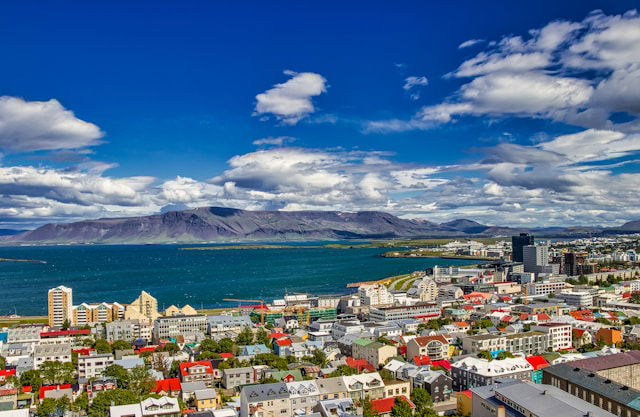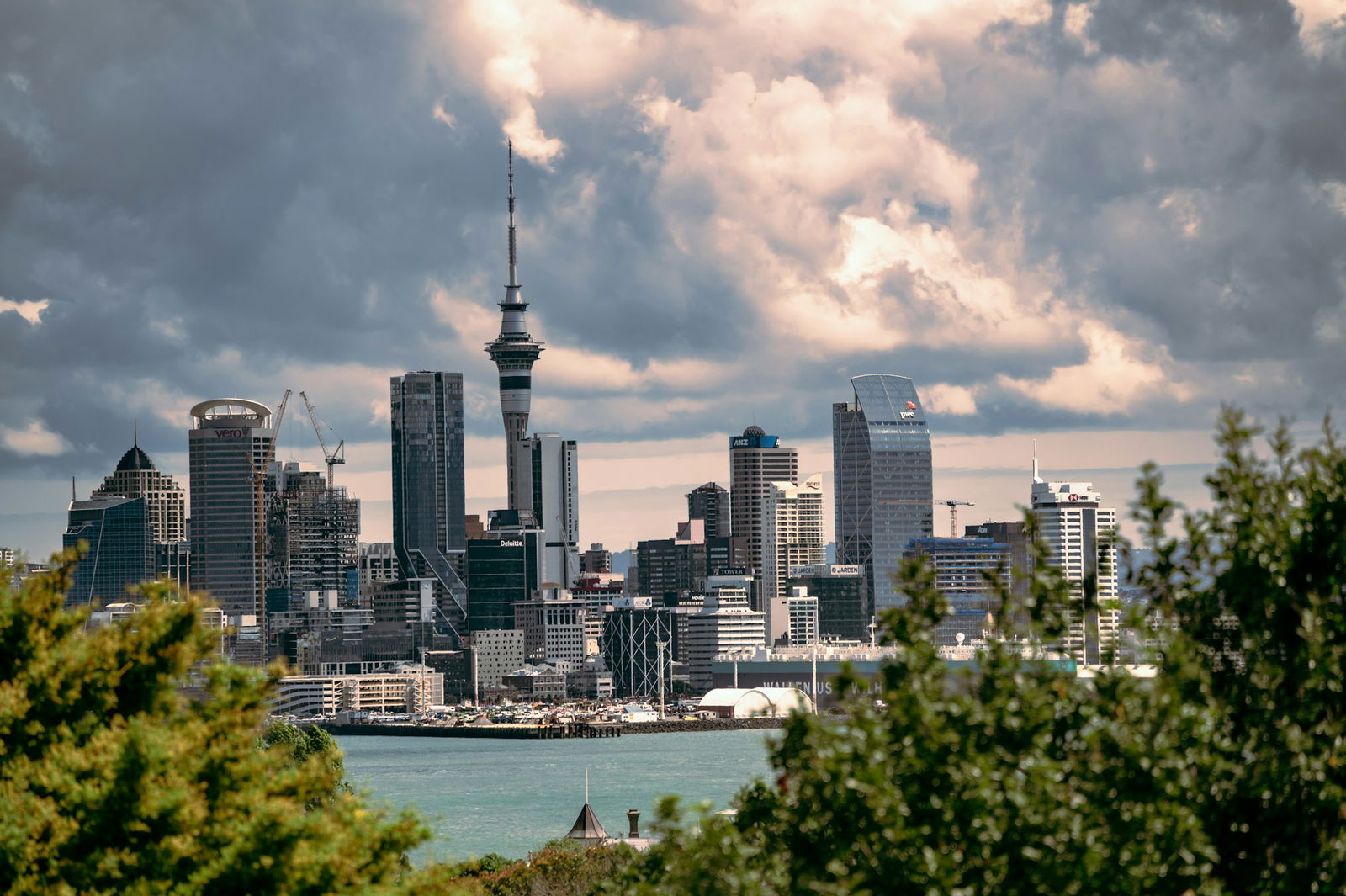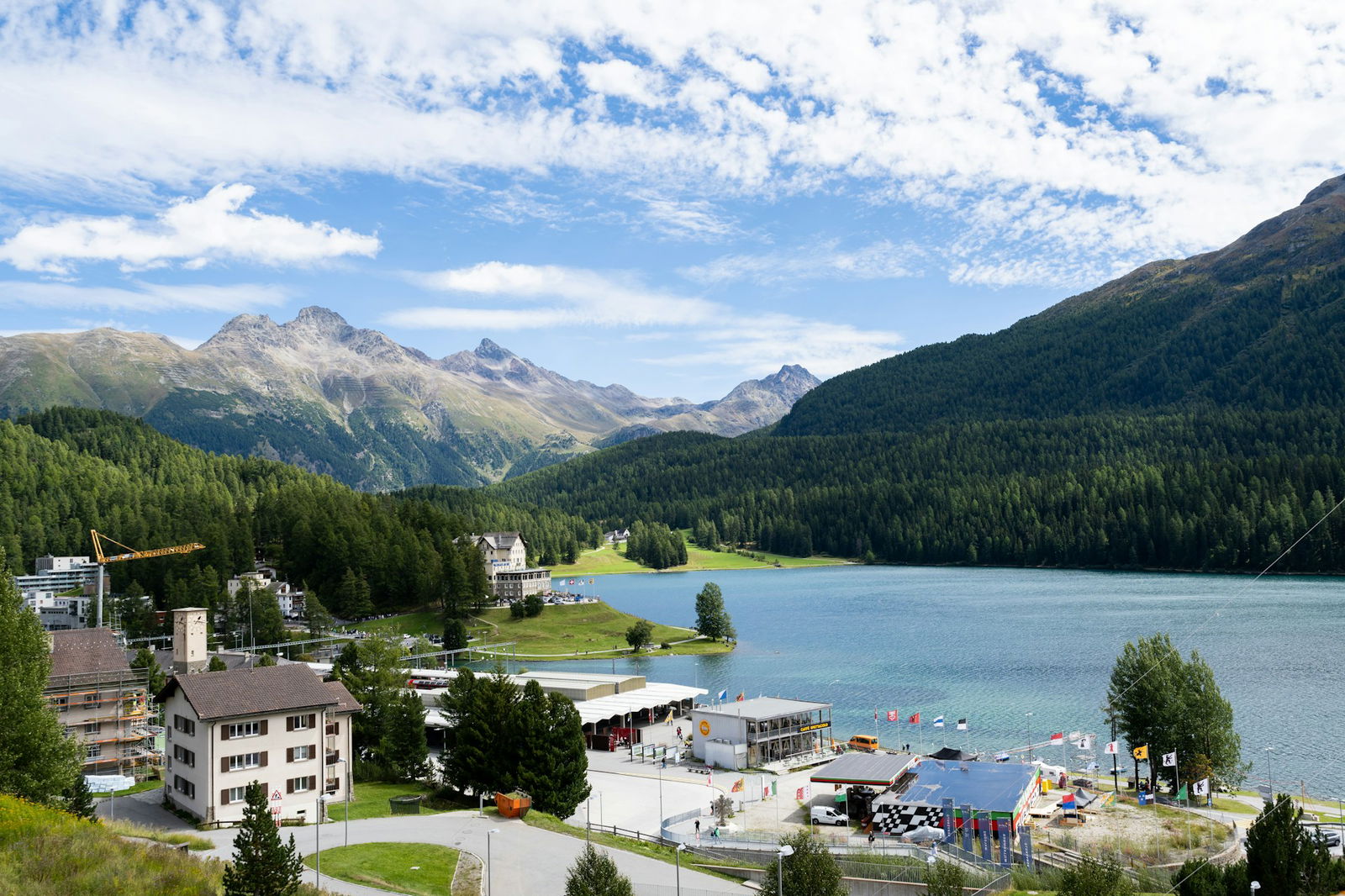Choosing a good destination to study abroad is very important. You might consider the language, culture, and average cost of living of various countries around the world. But another thing to consider before studying abroad is safety. Staying safe from crime, discrimination, and political instability will make your study experience more productive and fruitful. Additionally, understanding healthcare access, emergency services, post-study work opportunities, and how welcoming a country is to international students should be taken into consideration.
Safety extends beyond just crime rates, it includes the tolerance and acceptance of a community where diversity is celebrated, reliable public transportation, and well-maintained campuses and public spaces.
What are the safest countries for students to study abroad in 2026? Consider these five top destinations for your study abroad experience.
1. Iceland
Global Peace Index 2025 Ranking: #1 (Score: 1.095 - Held for 16+ consecutive years)
Iceland is ranked as the world's most peaceful nation and has impressively maintained its first place as the safest country in the world for over 16 years. This Nordic island nation combines exceptionally low crime rates with breathtaking natural beauty. Iceland currently has very low crime rates and a strong sense of community, with an economy driven by tourism, renewable energy, and fisheries
Why Iceland is exceptionally safe for students:
- Incredibly low crime rates, high levels of social trust, and political stability create a secure and calm environment where students can focus entirely on their studies and personal growth.
- Strong sense of community and excellent emergency services.
- Progressive society with comprehensive legal protections for all genders, sexualities, and religions.
- Reliable infrastructure and high standard of living.
- After graduation, students may renew their residence permit for up to three years to seek employment as an expert.
What to consider:
- Cost of Living: Iceland ranks among the top 10 most expensive countries globally, particularly for dining out and accommodation. Monthly expenses can range from $1,500-$2,500
- Tuition: No tuition fees at Iceland's four public universities, with only a registration fee of around ISK 75,000 (~$600) per year
- Climate: Long, dark winters with limited daylight hours may affect those sensitive to seasonal changes
- Size: Smaller international student community and limited program variety compared to larger countries
- PermanentResidency: Achievable after four years of continuous legal residence, provided you meet requirements for self-sufficiency and integration
Perfect for: Students seeking absolute peace of mind, nature enthusiasts, and those interested in renewable energy, environmental sciences, tourism, or Nordic studies.
2. Ireland
Global Peace Index 2025 Ranking: #4 (Score: 1.294)
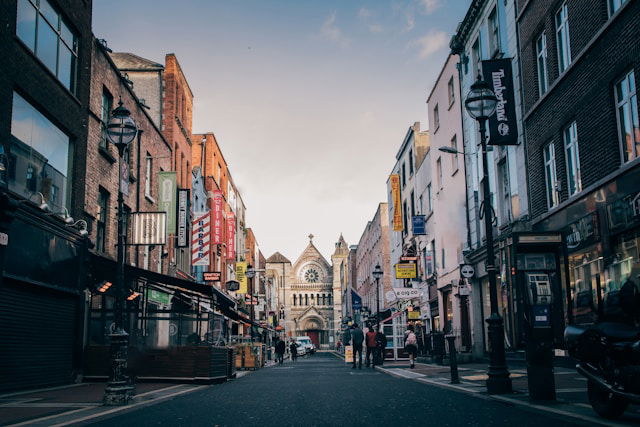
Ireland is among the top choices for international students when considering low-crime countries worldwide, ranked 2nd according to the Global Peace Index. Irish people are so kind and nice, according to international students studying there. Interest in Ireland has grown by 38% in just one year, making it a favorite for students looking for a secure and welcoming environment.
Why Ireland is safe for international students:
- Ireland has low crime rates and is known as a friendly and supportive place for students
- Famously welcoming locals and cosmopolitan student environment
- English-speaking nation with top universities
- Ireland is regularly voted as one of the friendliest countries
- Strong legal protections for minority and diverse communities
What to consider:
- Weather: Rainy climate year-round (invest in quality rain gear!)
- Housing: Competitive market in Dublin, especially during peak admission periods
- Cost of Living: Moderate to high in major cities, approximately $1,200-$1,800 per month
- Transportation: Limited public transport in rural areas
- Post-Study Work Visa: 2 years for degree graduates with potential for extension
- Tuition: EU students pay around €3,000 annual charge for non-tuition student services
Perfect for: Students seeking an English-speaking European destination, those interested in tech, business, pharmaceuticals, literature, or anyone who values a genuinely welcoming community atmosphere.
3. New Zealand
Global Peace Index 2025 Ranking: #3 (Score: 1.282)
New Zealanders are open-minded and believe people should be free to live the lifestyle they choose, which makes for an easygoing study abroad country largely free of personal violence and strife between communities. New Zealand leads the way in 2026 as one of the safest destinations, offering a secure environment along with world-class education and promising career paths.
Why New Zealand is safe for international students:
- The country is rated in international surveys as one of the world's most peaceful and least corrupt countries
- Comprehensive legal protections for all genders, sexualities, and religions
- English-speaking country with welcoming, friendly locals
- Proven track record of effective crisis management
- If you completed a degree Level 7 (diploma, bachelor's degree, graduate certificate, or graduate diploma) or above qualification that you studied full-time for at least 30 weeks in New Zealand, you can work in almost any job for any employer in the country
What to consider:
- Remote Location: Longer travel times and higher flight costs from many countries
- Cost of Living: High in cities like Auckland and Wellington, ranging from $1,500-$2,200 per month
- Outdoor Activities: Take standard precautions when exploring remote hiking trails
- Natural Risks: Earthquake risk, though all buildings meet strict safety codes
- Work Rights: Students can work up to 20 hours per week during studies
Perfect for: Adventure-seekers, outdoor enthusiasts, students in environmental sciences, film production, agriculture, and those wanting English-language education in a safe, progressive society with excellent career pathways.
4. Austria
Global Peace Index 2025 Ranking: #4 (Score: 1.294 - Tied with Switzerland)
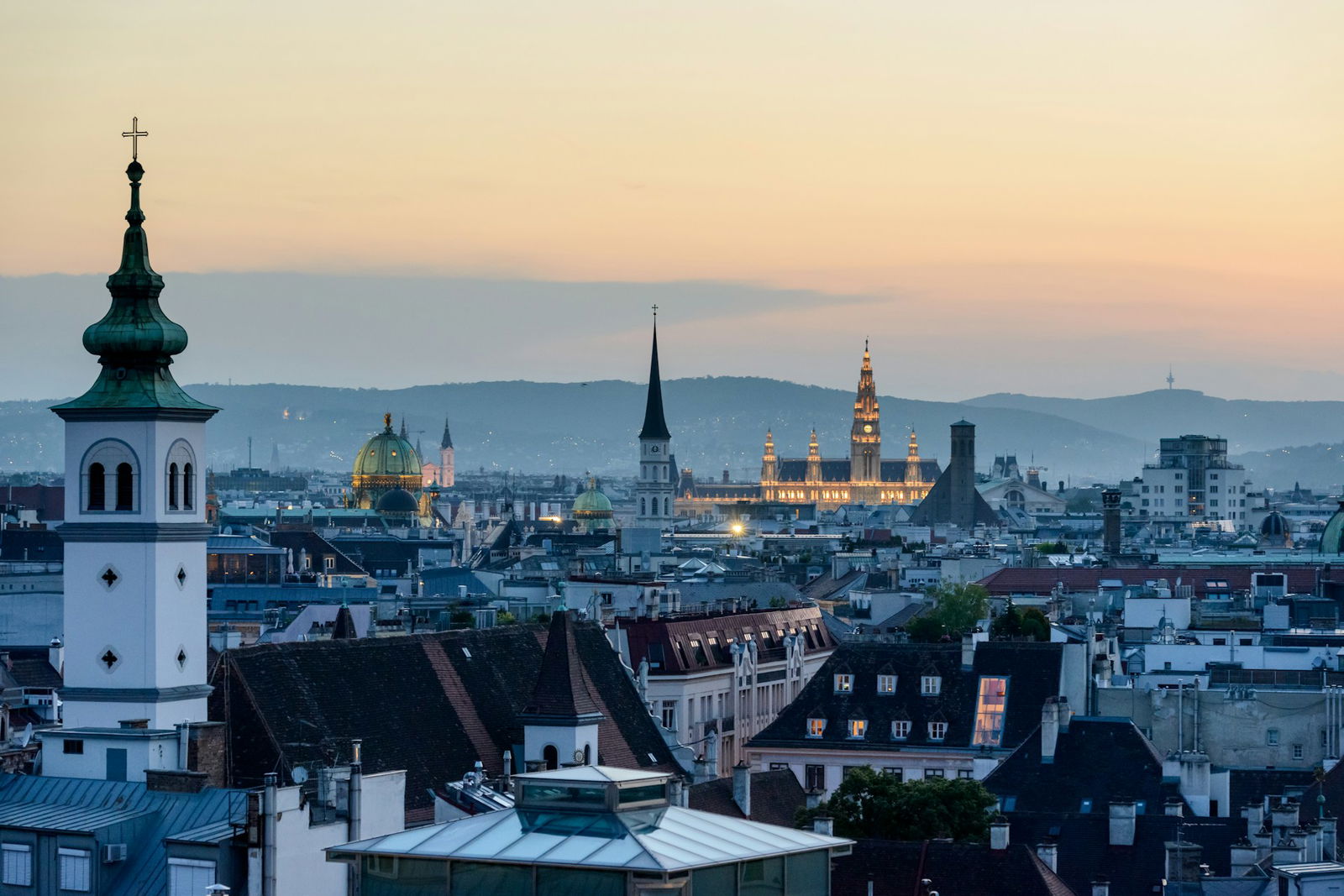
Austria has emerged as one of Europe's safest study destinations, tied for second place globally. This Central European nation combines imperial history, stunning Alpine landscapes, and modern innovation with exceptional safety standards. Vienna, the capital, consistently ranks as one of the world's most livable cities.
Why Austria is safe for international students:
- Extremely low crime rates and high public safety standards
- Austria has a robust economy with strengths in manufacturing, finance, and services, along with excellent healthcare
- Well-maintained public infrastructure and efficient transportation
- Strong legal protections for all communities
- Political stability and neutral international stance
- Safe, walkable cities even at night
What to consider:
- Language: While many programs are offered in English, learning German significantly improves daily life and career prospects
- Cost of Living: Moderate to high, approximately $1,100-$1,600 per month (lower than other Western European capitals)
- Tuition: Around €950-4,000 per year for EU students; higher for non-EU students
- Culture: Formal communication style and emphasis on punctuality
- Bureaucracy: Austrian administrative processes can be thorough and detailed
Perfect for: Students interested in music, arts, engineering, business, international relations, winter sports enthusiasts, and those wanting a central European base with excellent quality of life.
5. Switzerland
Global Peace Index 2025 Ranking: #5 (Score: 1.294)
Switzerland is well known worldwide for its safety, political neutrality, and high quality of life. This Alpine nation is synonymous with precision, quality, and security. Home to some of the world's leading universities and international organizations, Switzerland offers an unparalleled study experience in one of the planet's safest countries.
Why Switzerland is safe for international students:
- Extremely low crime rates across all cities and regions
- World-renowned political neutrality and stability
- Excellent public safety infrastructure and emergency services
- Highly efficient and safe public transportation system
- Strong legal framework protecting all residents
- Clean, well-maintained cities and campuses
- Multilingual, multicultural society with high tolerance
What to consider:
- Cost of Living: Very high with average living costs of CHF 22,734 (~$22,875) per year. Switzerland is one of the most expensive countries in the world, with monthly expenses ranging from $2,000-$3,000
- Tuition: Reasonable at CHF 805-1,238 (~$810-1,245) per year at public universities, making it surprisingly affordable compared to the cost of living
- Language: Programs available in German, French, Italian, and English depending on the region. Many Master's programs are in English, but local language skills greatly enhance the experience
- Work Restrictions: Students can work up to 15 hours per week during term time and full-time during holidays
- Visa Requirements: Non-EU students face strict visa requirements
- Social Integration: Swiss culture can be reserved, and making local friends may take time
- Bureaucracy: Swiss administrative procedures are thorough and must be followed precisely
Choosing where to study abroad is a journey that starts with ensuring your safety and peace of mind. Based on the Global Peace Index 2025, Iceland, Ireland, New Zealand, Austria, and Switzerland lead the way, offering not just secure environments but also world-class education and promising career paths.
Safety should be your foundation, but remember that the safest country for you is one where you can thrive academically, grow personally, and build your future career. All five countries featured in this guide offer exceptional safety, but each has its unique strengths:
- Iceland for unparalleled peace and environmental focus
- Ireland for English-speaking European access with warm hospitality
- New Zealand for adventure combined with security and excellent work rights
- Austria for European culture, quality of life, and central location
- Switzerland for precision, excellence, and the highest quality of life
Countries like Singapore, Portugal, Canada, and Denmark are also worth considering. The best advice for a safe trip abroad is to be aware. If something doesn't feel right, it likely isn't. Go with your gut, and make educated decisions. Most importantly, with proper preparation and awareness, you can focus on what truly matters: getting a world-class education, building international networks, and creating memories that will last a lifetime.
Your study abroad journey is an investment in your future. By choosing one of these safe destinations and following proper safety protocols, you're setting yourself up for a transformative, secure, and successful international education experience.
Resources for Further Research:
- Global Peace Index
- ShanghaiRanking
- QS World University Rankings
- Times Higher Education World University Rankings
- Your destination country's immigration website
- University international student offices
- Government travel advisory websites (U.S. State Department, UK FCDO, etc.)
Remember: This guide is current as of 2026 based on 2025 GPI data. Always verify the latest visa requirements, tuition fees, and safety conditions before making your final decision. Stay informed, stay safe, and embrace the adventure of studying abroad!
If you are ready to search for a university and program, you can use our platform to easily browse and apply to universities.


